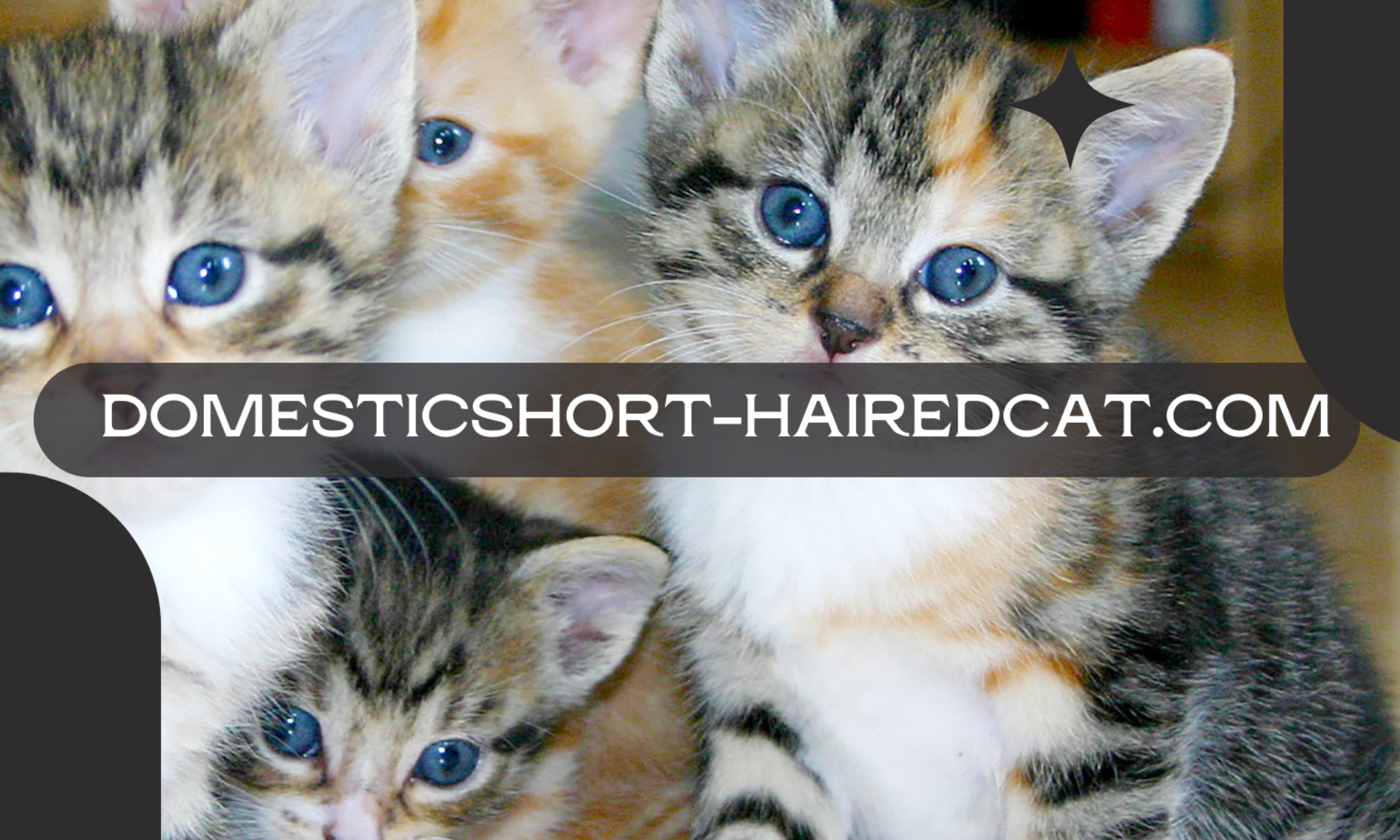One question that frequently comes up for Bengal cat owners is whether their Bengal kitties can or should eat raw meat. The answer is not a simple yes or no when it comes to Bengals so let’s take a deeper dive.
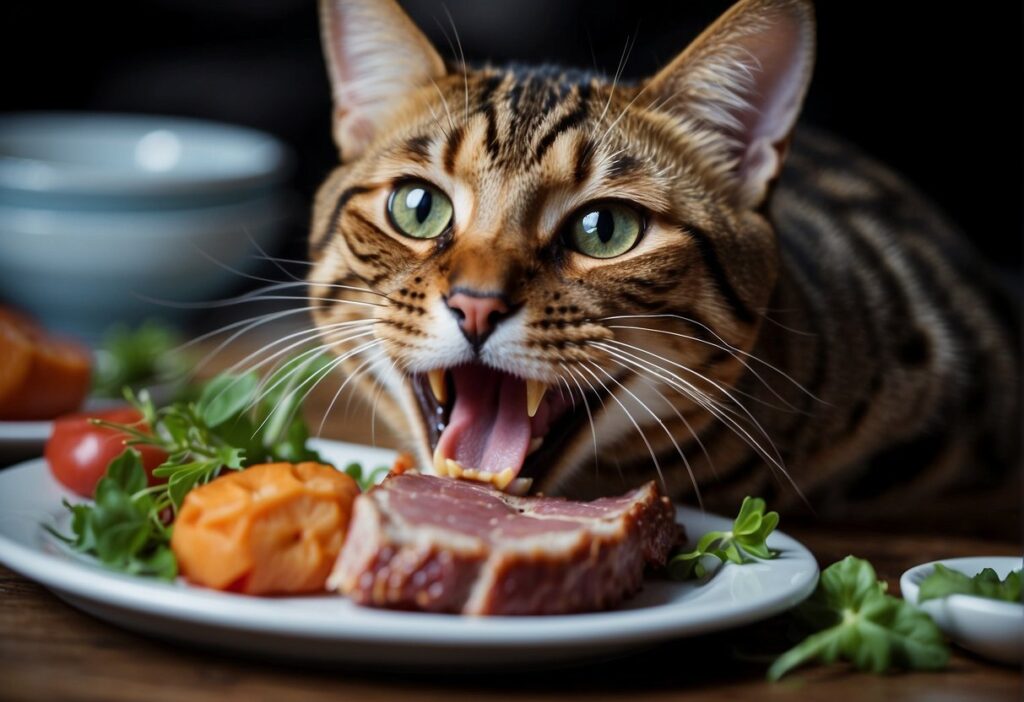
Bengal cats are obligate carnivores, meaning they require a diet that is high in protein and low in carbohydrates.
While commercial cat food can provide the necessary nutrients, some cat owners choose to supplement their cat’s diet with raw meat.
However, before you start feeding your little predator raw meat, please note that feeding a cat a raw meat-only diet can be very risky and may not provide all the necessary nutrients. It is always best to consult with a veterinarian before making any significant changes to your cat’s diet.
In this article, I’ll explore the topic of Bengal cats and raw meat in more detail. We will discuss the benefits and risks of feeding your cat a raw meat diet, as well as provide tips for incorporating raw meat into your cat’s diet safely.
Understanding their Nutritional Needs
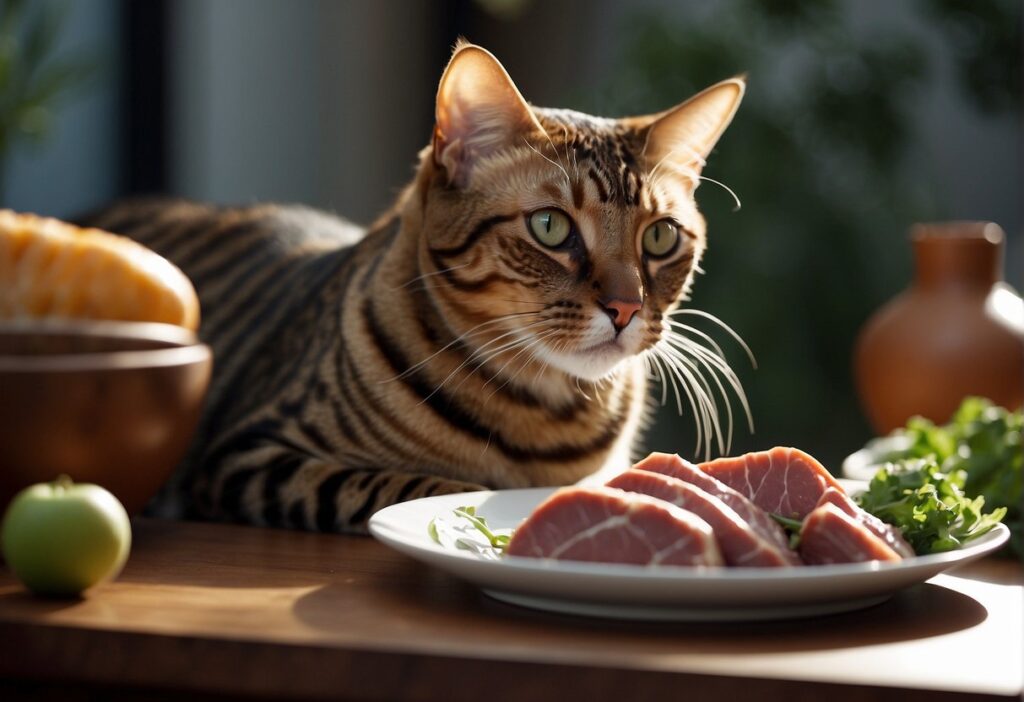
In terms of diet, Bengal cats are like any other domestic cat. They require a balanced diet that includes protein, fat, and carbohydrates.
While some owners choose to feed their Bengal cats a raw meat diet, it is not necessary. According to Bengal Cat Club, Bengal cats can benefit from a raw meat diet, but it is not required for their overall health and well-being.
Bengal Cats as Obligate Carnivores
Bengal cats, like all domestic felines, are obligate carnivores. But what does that mean exactly?
What Are Obligate Carnivores?
Obligate carnivores are animals that require a diet consisting of primarily animal tissue to survive and thrive. Unlike omnivores, they cannot digest plant matter efficiently, and their bodies are not designed to extract the necessary nutrients from a plant-based diet.
Bengal cats, being obligate carnivores, require high-quality protein, taurine, arachidonic acid, and vitamin A, which are predominantly found in animal tissue.
Natural Diet of Wild Ancestors
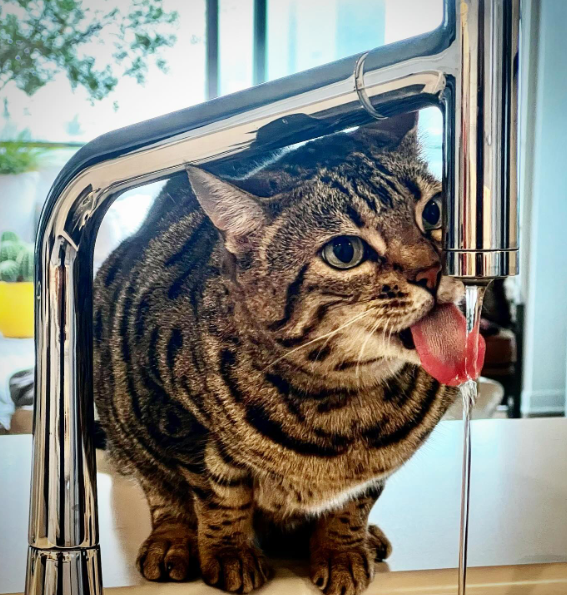
Bengal cats have wild ancestors, specifically the Asian Leopard Cat. In the wild, these cats hunt and eat small prey such as rodents, birds, and reptiles.
This natural diet provides them with all the necessary nutrients to survive and thrive. As domesticated cats, Bengal cats still require a diet high in animal protein to maintain good health.
While Bengal cats require a diet high in animal protein, feeding them a raw meat diet has its risks and could make them sick.
Raw meat may contain pathogens like Salmonella and E. coli that can lead to serious life-threatening infections. Cooking meat removes most of these pathogens, which is why many cat owners choose to feed their cats cooked meat instead.
Health Benefits of Raw Meat
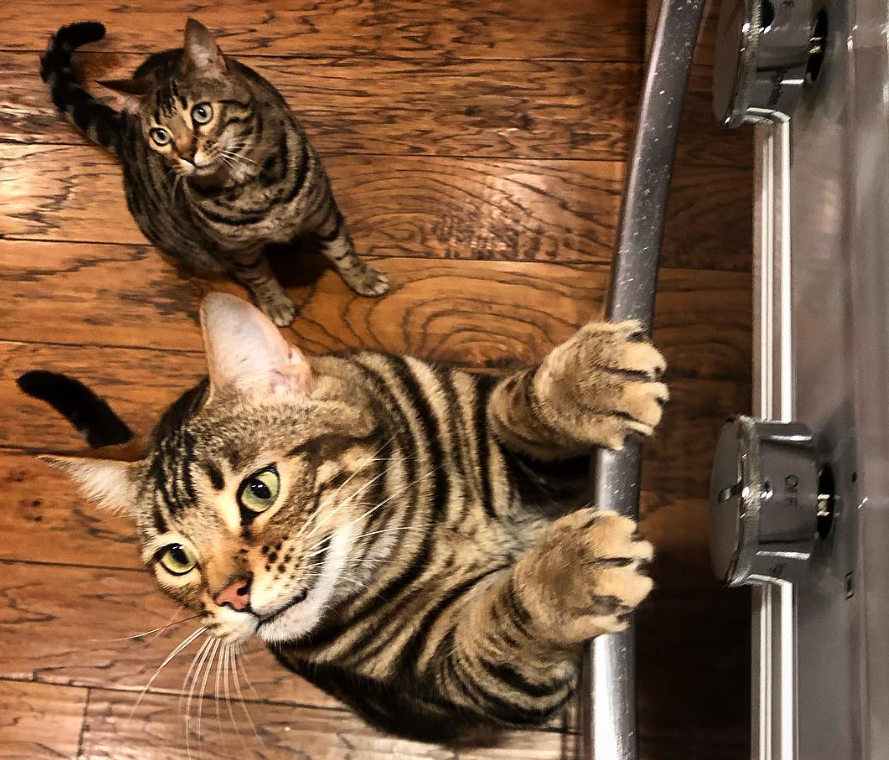
There are several health benefits of raw meat for Bengal cats. They’re listed below:
1. Protein and Amino Acids
Raw meat is an excellent source of protein and amino acids, which are essential for maintaining a healthy body.
According to Bengal Cat Republic, “Feeding your Bengal cat a raw meat diet is a choice that has a strong basis in the animal’s natural nutritional needs.”
A diet rich in protein and amino acids can help improve muscle mass, promote healthy growth, and support the immune system.
2. Fats and Fatty Acids
Raw meat is also a good source of healthy fats and fatty acids, which are important for maintaining healthy skin and coat.
According to Wild House Cats, “Feeding raw meat to Bengal cats can provide a natural and biologically appropriate diet that mimics their ancestral diet in the wild.”
A diet rich in healthy fats and fatty acids can help improve coat quality, reduce inflammation, and support the digestive system.
3. Vitamins and Minerals
Raw meat is also a good source of vitamins and minerals, which are essential for maintaining a healthy body.
According to The Pet FAQ, “Many Bengal cat owners have reported shinier coats, increased vitality, and a more satisfied appetite when feeding their cats a raw meat diet.”
A diet rich in vitamins and minerals can help improve overall health, boost the immune system, and promote healthy digestion.
Raw Meat Diet Components
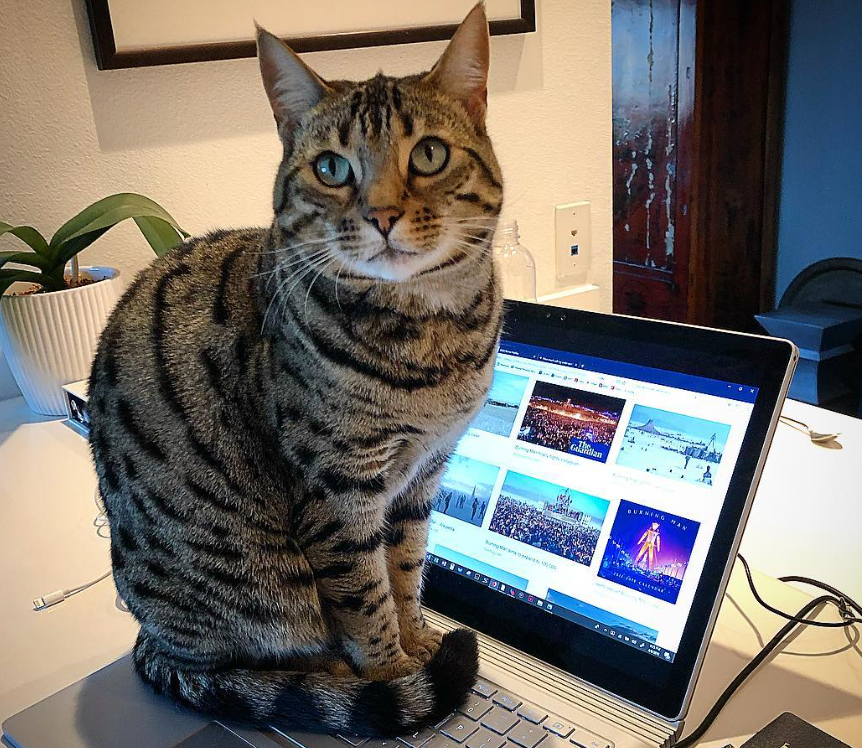
When feeding a Bengal cat a raw meat diet, it is important to ensure that it includes all the necessary components for a balanced and nutritious meal. Here are the main components that should be included:
1. Muscle Meat and Organ Meat
The main component of a raw meat diet for Bengal cats should be muscle meat. This can include raw meat such as chicken, turkey, rabbit, and fish.
You’ll want to ensure that the meat is fresh and of high quality. Organ meat, such as liver and heart, should also be included in the diet as they provide essential nutrients that are not found in muscle meat.
2. Bones and Bone Meal
Bones are an important component of a raw meat diet for Bengal cats as they provide essential minerals such as calcium and phosphorus.
Raw bones can be fed to cats, but you’ll want to make sure that they are not too small or too large, as this can pose a choking hazard. Alternatively, bone meal can be added to the diet to ensure that the cat is getting enough minerals.
3. Additional Supplements
In addition to muscle meat, organ meat, and bones, there are a few additional supplements that can be added to a raw meat diet for Bengal cats. These include:
- Taurine: A crucial amino acid that is essential for a cat’s heart health and vision.
- Vitamin E: An antioxidant that helps to protect cells from damage.
- Omega-3 Fatty Acids: These are essential fatty acids that are important for a cat’s skin and coat health.
Keep in mind that supplements should be used sparingly and only if necessary. Over-supplementing can be harmful to a cat’s health.
Avoiding Bacterial Contamination
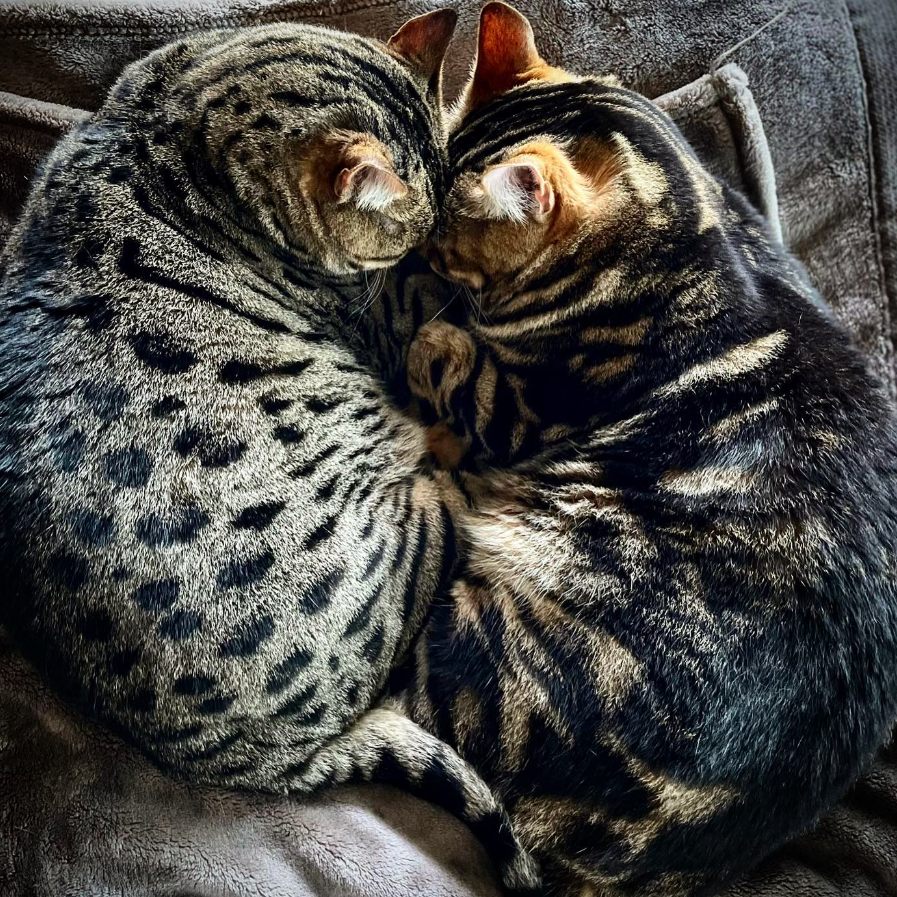
As mentioned earlier, raw meat may contain harmful bacteria such as Salmonella and E. coli, which can cause serious health problems for cats.
To avoid bacterial contamination, please make sure to purchase high-quality meat from a reputable source. You can also freeze the meat for at least 48 hours before feeding it to my cat, as this can help kill off any potential pathogens.
Supervising Meal Times
As with any food, it’s a good idea to supervise meal times to ensure that your cat is eating safely.
You should monitor their behavior during meal times to ensure that they are not showing any signs of illness or discomfort.
Transitioning to a Raw Meat Diet
Before transitioning to a raw meat diet for your Bengal kitty, I would talk to a vet first and make sure that your cat is healthy and ready to do so. Here are some tips that you may find useful:
Gradual Introduction
Introduce a small amount of raw meat into your cat’s diet and gradually increase the amount over time. This gives the cat’s digestive system time to adjust to the new diet.
You can also mix the raw meat with your cat’s regular food to make the transition smoother.
Not all cats will take to a raw meat diet, so it’s important to monitor your cat’s experience and adjust accordingly. If your cat is not interested in raw meat, try different recipes or consult with a veterinarian for advice.
Monitoring Health Changes
As you transition your cat to a raw meat diet, monitor their health closely.
Keep an eye out for any changes in your cat’s energy levels, coat quality, and overall health.
You’ll also want to take your cat to the vet to ensure they’re getting all the nutrients they need.
Commercial Cat Food vs. Raw Meat Diet
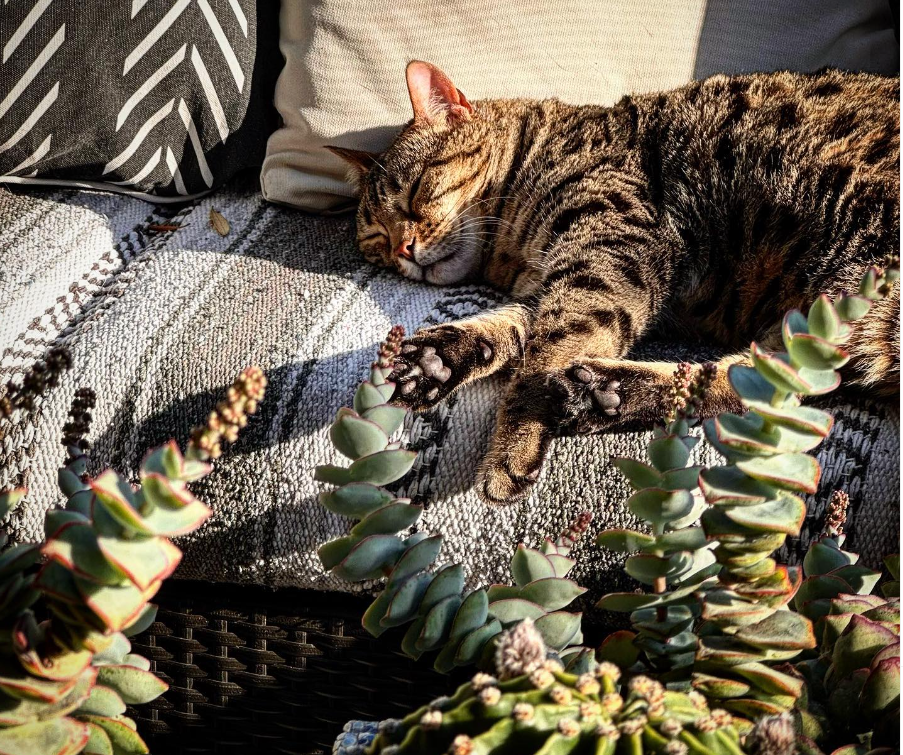
Like anything else in life, there are plenty of pros and cons to feeding your Bengal kitty commercial foods vs raw food so I’ll be discussing it all here:
1. Nutritional Content Comparison
Commercial cat food is marketed as “complete and balanced,” meaning it contains all the necessary nutrients for a cat’s health. However, many commercial cat foods contain fillers, such as grains and vegetables, which are not a part of a cat’s natural diet.
On the other hand, a raw meat diet provides cats with the protein and nutrients they need to thrive.
According to Registered Bengals, a raw meat diet can improve a cat’s coat quality and overall health. Raw meat contains natural enzymes that aid in digestion and absorption of nutrients. Plus, it can help prevent dental issues, such as tartar buildup.
2. Convenience and Cost
One downside to a raw meat diet is the convenience factor. It takes time and effort to prepare and store raw meat, especially if you are buying it in bulk.
But also, a raw meat diet can be more expensive than commercial cat food.
Commercial cat food, on the other hand, is convenient and easy to store. It comes in various forms, such as kibble and canned food, and can be purchased at most pet stores. It is also more affordable than a raw meat diet.
A Serious Note on Pathogens and Parasites
I already mentioned that raw meat can expose your cat to pathogens such as salmonella or E. coli, but there’s more.
Raw meat may contain parasites such as Toxoplasma gondii, which can cause toxoplasmosis in cats.
Is it safe for Bengal cats to eat raw chicken?
Yes, it is safe for Bengal cats to eat raw chicken, as long as the chicken is fresh and of high quality.
Raw chicken is an excellent source of protein for your cat, but it’s important to make sure that the chicken you’re feeding your cat is free from any harmful bacteria or parasites. You should also make sure to handle the chicken properly to avoid any cross-contamination.
How often should I feed my Bengal cat raw meat?
It’s recommended that you feed your Bengal cat raw meat at least once a week.
However, you can feed your cat raw meat more often if you like. Just make sure that you’re not overfeeding your cat and that you’re providing them with a balanced diet that includes other essential nutrients.
Again, if your cat is already on a diet of cooked food or commercial food, then you’ll want to consult your vet first.
Can I give my Bengal cat raw ground beef?
Yes, you can give your Bengal cat raw ground beef, but it’s important to make sure that the beef is fresh and of high quality. But it should be given sparingly.
You might find this article useful as well: Should You Give Your Bengal Cat Milk?
